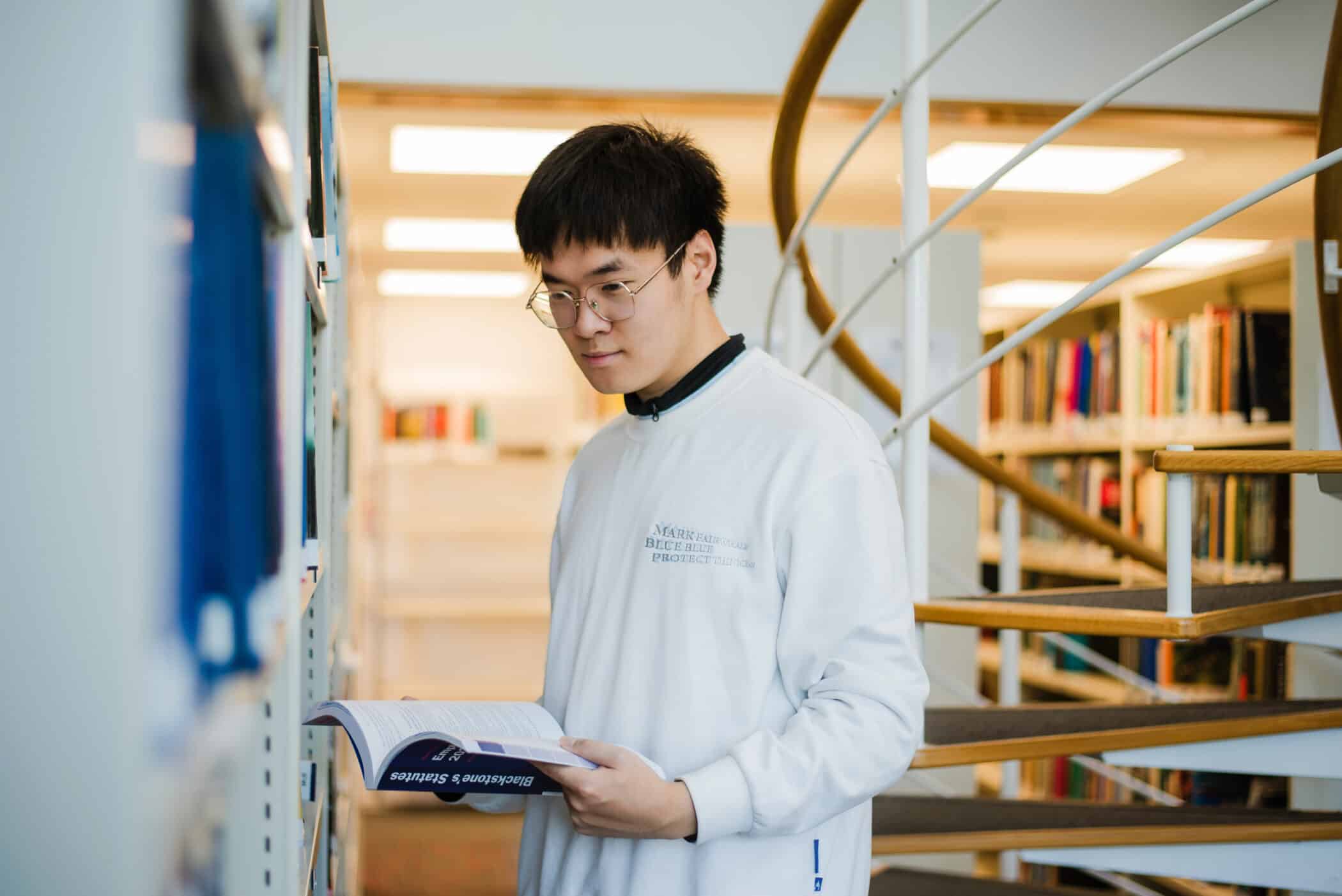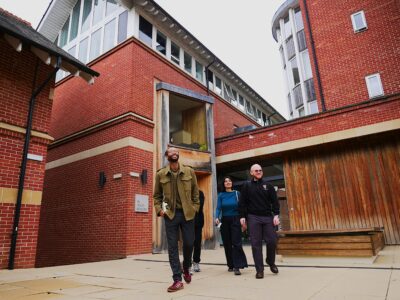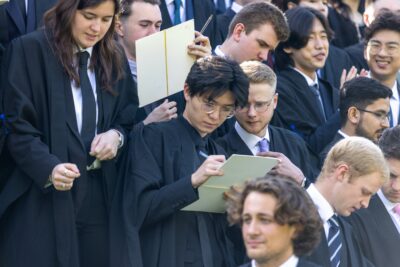We recognise that mature students often come to university through different and sometimes unconventional routes. As a mature college, we’re well equipped to recognise, assess and accept a range of different qualifications from both the UK and overseas.
The nature and demands of Cambridge courses mean they require academic preparation, and mature students are expected to be of an equal academic standard to school leavers, although do not necessarily need to have the same qualifications.
We recommend that all applicants who achieved their academic qualifications more than two years prior to application undertake some additional preparation. This is simply so that you can engage with academic studies at the same high level as soon as your degree begins. Applicants who have taken a break from study lasting more than two years are likely to be disadvantaged if they do not prepare formally.
There are some qualifications which are frequently studied by mature learners in the UK that we can provide more details about.
Students holding international qualifications
Please view the entry requirements for students holding international qualifications below
A-Levels
Access to Higher Education (HE) Diplomas
Certificates of Higher Education/Foundation Years
Incomplete Undergraduate Degrees
Open University Courses and Credits
Portfolios of Qualifications
Vocational and Professional Qualifications

English Language Requirements
It is essential that your English language skills are good enough to undertake an intensive and challenging academic course that is both taught and examined in English.
If English is not your first language, we may ask for evidence of language proficiency prior to admission. For some European students, this may consist of a high grade in the English component of your school-leaving qualification. For other candidates from nations not on the UK Government’s list of English-speaking countries, we usually ask you to complete the International English Language Testing System (IELTS) and achieve an overall grade of 7.5 or above (with at least 7.0 in each element). Please note that you do not need to have taken the IELTS when you apply; if you are offered a place, passing the IELTS may be set as a condition of offer.

Entry
Assessments
For many subjects, you will need to take an admissions assessment before your interview. For some subjects, you need to register for this assessment in advance and take the test in an approved test centre near you. For other subjects, we will arrange your admissions assessment and contact you with all the relevant details.
You must register in advance for your admissions assessment if you are applying for one of the following subjects:

Assessment
by request
For the following subjects, the College will arrange an admissions assessment for you if you are shortlisted for interview.
AMES with a European language, Archaeology, Architecture, Classics, Design, English, Geography, History and Modern Languages, History, History and Politics, HSPS, Linguistics, Mathematics, Maths with Physics, MML, Music, Psychological and Behavioural Sciences and Theology, Religion and Philosophy of Religion.
Failure to take any of these tests will result in the automatic rejection of your application, despite what qualifications (academic or professional) that you might already hold.
Written Work
For some courses, you will be asked to provide a sample of your written work. Ideally this work will be from your most recent studies and will be marked. A discussion of your work may then form part of the interview.
Applicants will be asked to submit recent written work in the following subjects. Most subjects require two pieces of written work unless otherwise specified:
- Architecture (we would ask you to present a portfolio of recent work at interview)
- Anglo-Saxon, Norse & Celtic
- Archaeology (only one piece of written work is required, and this should be in essay format)
- Classics
- Design (we would ask you to present a portfolio of recent work at interview)
- Education
- English
- History
- History & Modern Languages (two history essays if applying for an ab initio language, otherwise one history and one foreign language essay)
- History & Politics
- Human, Social & Political Sciences
- Land Economy
- Law
- Linguistics
- MML (one in each language you wish to study – if applying for an ab initio language then please send one foreign language essay and one in English)
- Music
- Psychological and Behavioural Sciences
- Theology Religion & Philosophy of Religion
There is no required word length for written work. Yet, essays between 1,500 and 3,000 words would be most suitable. We will request a sample of your written work from you when we receive your application; please do not send anything until requested. Essays should be from relevant subjects but can span the range of subjects on which you are working. If you would like to submit two essays from the same subject, it is helpful if they are on separate topics. If your most recent course of study does not include any essay work, then please get in touch with the Admissions Team (admissions@st-edmunds.cam.ac.uk), who will be happy to advise you.
Apart from courses with a foreign language element, all submitted written work must be in English. If your writing is in a language other than English, then translations are acceptable.
We will provide further guidance on the requirements for this written work, together with a coversheet, on receipt of your application. Your marked written work should be sent via e-mail.
Information about submitted work can be found here. If you have any queries about written work, please contact the Admissions Office by emailing us at: admissions@st-edmunds.cam.ac.uk.

Interviews
If your application is short-listed, you will be invited for interview. If you apply in October, interviews take place in December. Interviews for those who apply in the second application round are held in April. All interviews are held online using zoom.
Your interview will take the form of a conversation with one or more subject specialists in your field. Your interviewers will encourage you to think deeply about your subject and consider new ideas and problems. You should see your interview as a chance to experience an example of Cambridge’s Supervision system to find out if this style of teaching will work for you.
Tips on preparing for your interview can be found on the University of Cambridge website.





